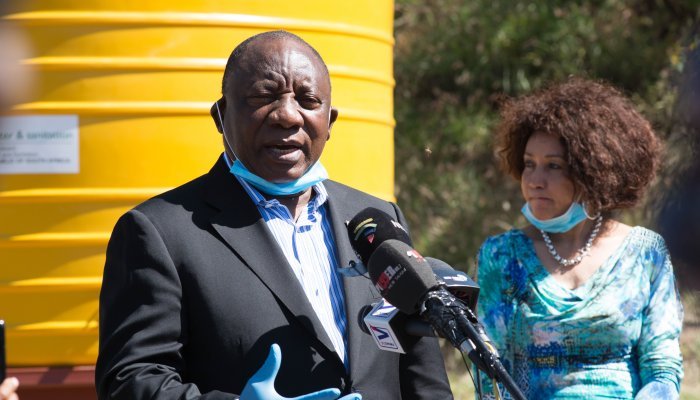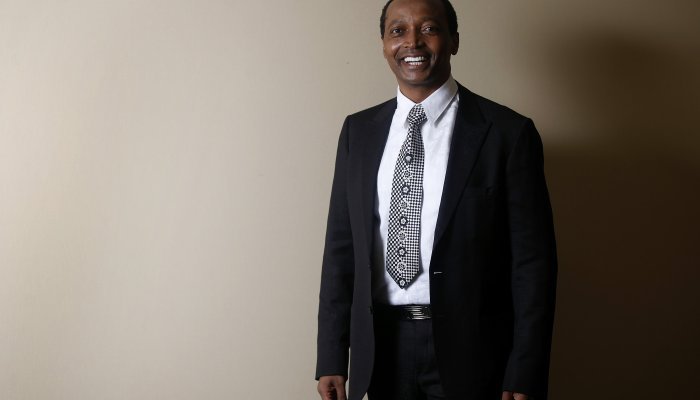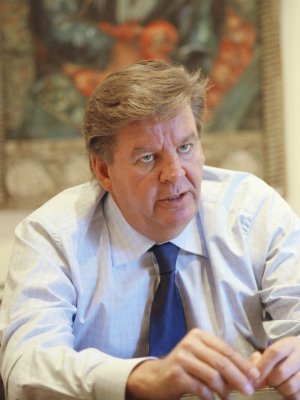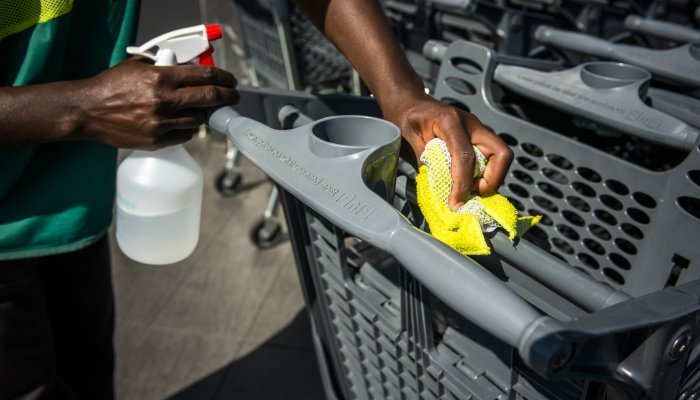Just months into South Africa’s response to the Covid-19 outbreak and the capricious nature of heroism means that some whom we applauded at the start of the national lockdown on 26 March 2020 have rapidly fallen out of favour, aligned to the status of villains or incompetents. In time, others will rise, many will fall, and all will have to adapt as the pandemic evolves.
Captain South Africa or The Mask?
President Cyril Ramaphosa is a prime example of how public opinion can turn on a dime. Two memes shared on social media over this period tell the fickle story of heroism, lockdown style. In March, a digital illustration was circulated of Ramaphosa envisaged as a superhero, Captain South Africa. In April, the memes were of a decidedly more mocking nature – albeit with a touch of fondness – as the president bungled his way through a demonstration of how to wear a face mask during a televised address.
Of course, politicians make for easy pickings with every wrong move taking on tragi-comic proportions. But while the politicians burn up the headlines, other acts of bravery are evident in homes across South Africa, in our healthcare system, among charity and essential services workers, and – yes – even in business.
The employers
Statistics South Africa released data in mid-May noting that of the 2,182 businesses surveyed between 14 and 30 April 2020, 36% had laid off staff over the lockdown period, 90% saw lower turnover, and 48% had paused trading. The survey – the second conducted by Stats SA since the start of the lockdown – noted that just 7% of businesses could survive for longer than three months.
Faced with figures such as these, it is not surprising that those companies able to support staff financially and in terms of safety are emerging as shining lights. Woolworths, for example, has been vocal about its efforts to protect staff and shoppers by supplying employees with reusable fabric masks and making visors available. The company is offering free flu vaccinations to staff as well as access to free hand sanitiser. Furthermore, Woolworths is allocating R2 million in food packs to help those in need. In total, the group puts its coronavirus efforts at R34 million. In addition, top executives are foregoing up to 30% of their salaries for three months to help ensure all staff are paid. The group is leaning heavily on online sales and cutting back on capital expenditure, while keeping supplier partnerships in tip-top condition. Still, the group expects profits will decline by more than 20%, says Reuters.
Similarly, Spier – which won gold in the responsible business category at the 2020 Inspirational Africa Responsible Tourism Awards in April – is standing by its commitments to staff and community neighbours by ensuring all staff remain employed on full pay. Spier is also covering the salaries of some micro-enterprise suppliers. Speaking to Business Insider, Spier GM Joep Schoof said: “We’ve been brutal in looking at our operating costs and turning over every stone. We made the decision to pay everyone, and we’ve instituted a minimum wage for those on part-time contracts. So, whether they work the hours or not, there’s a minimum income.”
Spier, which is owned by investment holding company Yellowwoods Investments, also made news headlines for letting 100 foreign guests, who were stranded in South Africa, stay on free of charge in exchange for donations to the Solidarity Fund.
The innovators
While it is still early days, examples of meaningful adaptions are already beginning to emerge in South African business. Consider the newly-minted partnership with Discovery and Vodacom to roll out free virtual doctor’s consultations, or MTN’s tie-up with the University of South Africa to make R59.7 million in free data available to registered students until mid-July. On a smaller scale, alcohol delivery company, Quench, rapidly adapted its model when the alcohol ban came into effect in March, shifting to a same-day delivery service for Woolworths. In an April media statement, MD Liam McCreedy said sales were already up 350%.
Other companies that have been quick to adapt their business models include the likes of education group, Curro, and alcohol producer, Distell.
Curro, with 166 schools and 70 campuses around the country, was already well advanced in its online learning approach before lockdown, having introduced digital learning platforms such as ITSI Pro, miEbooks and the Snapplify eReader. With classroom education suddenly halted for its more than 62,000 students, the group quickly pushed a strategy of online learning that supported the usual school routine. They rolled out Microsoft Office 365 for Education to enable teachers to connect virtually with students in real time and to share videos, resources and set tasks.
“Virtual and remote learning strategies bring tremendous value to the education space during uncertain times such as these and there is no doubt that it will firmly remain a significant part of the way we learn in the future,” said Andries Greyling, CEO of Curro Holdings.
Distell, meanwhile, shifted its production away from spirits, ciders and wines to rolling out hand sanitisers and hygiene products. The company donated 105,000 litres of alcohol for use in these essential products and, in a trading update on 15 May 2020, announced that R8 million in revenue was generated from the sale of alcohol and sanitizer since the lockdown began. The shift has been so successful that the group informed investors that it was “investigating this as a sustainable business opportunity”.
Like Woolworths, Distell expects profits to take a knock and is focusing on online sales platforms and putting some African expansion plans on hold. But Distell CEO, Richard Rushton, told CNBC Africa in mid-May that the group was working “hard at constraining costs and limited discretionary capital expenditure and raising short-term debt from our banks. So, we have future headroom to ride out this crisis.”
The fallen
Of course, not all businesses will be this lucky. It didn’t take long for the lockdown to claim its first scalp: the iconic publishing empire created by Jane Raphaely in 1982. This closure brought down Cosmopolitan magazine, House & Leisure, Good Housekeeping and Women on Wheels. The “unexpected and devastating impact of Covid-19 … made it impossible to continue trading”, explained Associated Media Publishing CEO, Julia Raphaely.
Caxton Magazine soon followed suite, closing magazine titles such as Garden & Home, Bona, Country Life, Rooi Rose, Woman & Home and Your Family. Then came the news that newspaper groups such as the Mail & Guardian, Independent Media and Arena Holdings were instituting salary cuts.
Other sectors feeling the pain include the renowned wine industry. As South Africa was knocking on the door of lockdown Level 3, wine producers’ body Vinpro told the BBC that 80 wineries could close. Rico Basson, CEO of Vinpro, spoke of a “material, structural impact” and “we think we will lose 300 producers and 14,000 jobs”.
Similarly, the franchising sector – from beauty spas to restaurant and fast-food chains – is under pressure. In an interview with CNBC Africa in mid-May, the executive director of the Franchise Association of South Africa, Vera Valasis, said: “We expect a deep and long downturn in the franchise industry.”
In mid-May, the Sorbet group of 220 salons across South Africa, which employs around 3,500 people in its largely owner-managed stores, began calling for the re-opening of beauty, nail and hair businesses, under strict safety conditions. “Initial estimates show that 40% of Sorbet salons could face closure should the lockdown restrictions prevent them from returning to trade by 1 June 2020,” said Sorbet in a statement, adding, “Any further extension of the lockdown beyond this date could see the entire industry face potential bankruptcy.”
Tourism-facing businesses are also in trouble. Airline Comair is under business rescue, travel agency Flight Centre is projecting it will close 40% of its South African outlets as a result of the coronavirus crisis, and City Lodge has only six operating hotels, out of 62. With the plug being pulled on weddings, events and conferences, even South Africa’s flower farming industry is wilting.
For some businesses, like retailer Edcon and state-owned airline South African Airways, the writing was on the wall ahead of the lockdown. But for successful ventures such as Sorbet and the local wine sector, the economic fallout will certainly have come from left field. Some will survive. Many will not.
Salute to the givers
South Africa’s pro bono Solidarity Fund, created just days before lockdown, is a power example of national unity in the face of the pandemic – a heroic collaboration between citizens, the public and private sector, and civil society. It helps that donations are open, transparent, and independently administered by Old Mutual (at no cost) to avoid sticky fingers getting into the multibillion-rand pie.
The fund is also a visible example of South Africa’s extensive benefactor system in action. From philanthropic organisations to individual citizens electing to pay their domestic workers and service providers throughout the crisis, these unsung heroes are proving key to South Africa’s Covid-19 response.
As of mid-May 2020, the Solidarity Fund had collected R2.16 billion with an additional R540,000 pledged. More than 175,000 individuals and 1,500 businesses had contributed and the fund had dispersed R1.2 billion, with a major focus on testing kits, procuring protective equipment for healthcare workers and delivering food support.
There are big names behind the Solidarity Fund, the likes of PwC, EY, ENSafrica, the Yellowwoods Foundation, the Cyril Ramaphosa Foundation, Rothschild and Brunswick, and individuals such as well-known businesswoman and chair Gloria Serobe, Yellowwoods’ Dr. Adrian Enthoven and Professor Michael Katz, chairman of ENSafrica. The likes of Mary Oppenheimer and daughters have pledged R1 billion to the fund, alongside ordinary citizens whose salary contributions already total R22 million.
In addition, wealthy local families are also injecting funds, with Nicky Oppenheimer pledging R1 billion to the South African Future Trust to provide payroll support to companies with turnovers below R25 million. The Motsepe Foundation, alongside Sanlam, African Rainbow Capital and African Rainbow Minerals, donated R1 billion, while Johann Rupert and family donated R1 billion to assist small businesses. Billionaire entrepreneur Douw Steyn opted for a more diversified approach, donating R50 million to the Solidarity Fund, R200 million to feeding schemes in Diepsloot and surrounds and R70 million to small business relief within the Telesure Investment Holdings supply chain.
These are only the high-profile stories. More examples will emerge in the months to come as South Africans pull together. Many of these benefactors may never see a Captain South Africa meme with their face superimposed on a buff superhero body, but their actions do conjure up the words of Marvel Comics legend Stan Lee: “That person who helps others simply because it should or must be done, and because it is the right thing to do, is indeed without a doubt, a real superhero.”
...companies able to support staff financially and in terms of safety are emerging as shining lights...
...alcohol delivery company Quench rapidly adapted its model... sales [are] already up 350%.
For some businesses...the writing was on the wall ahead of the lockdown.








